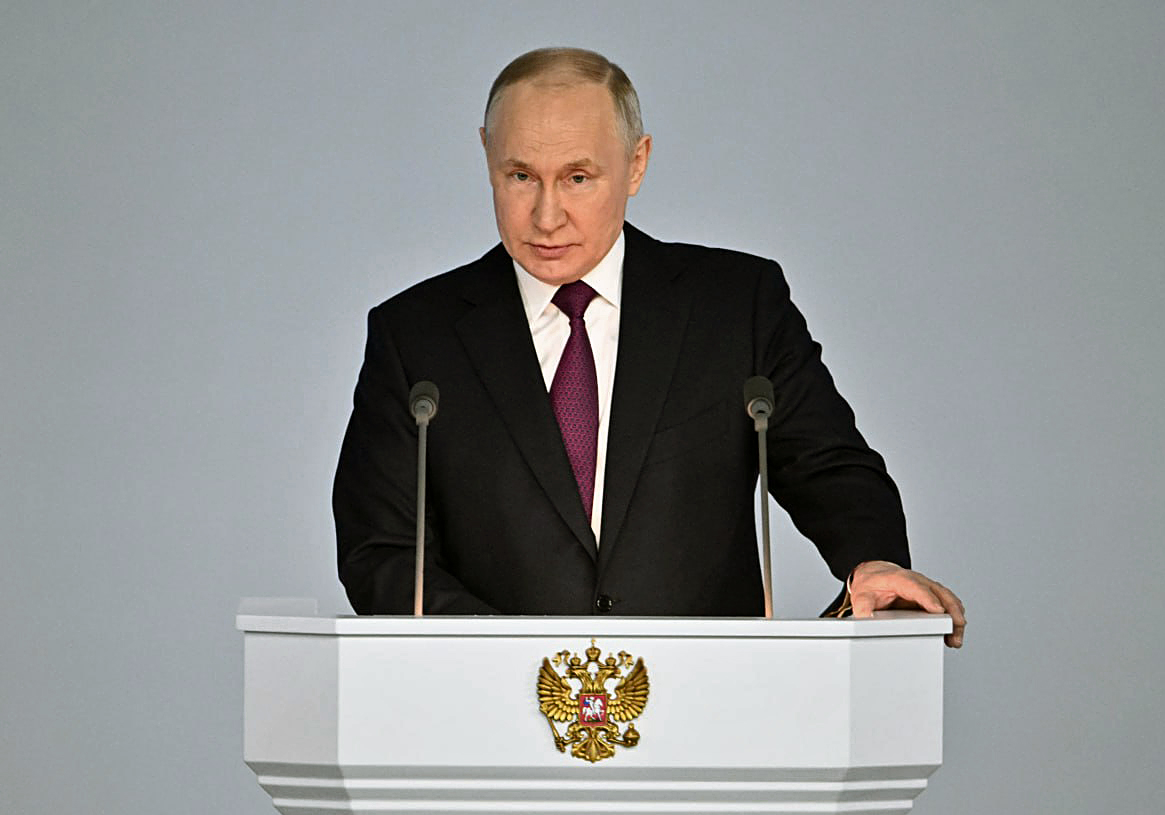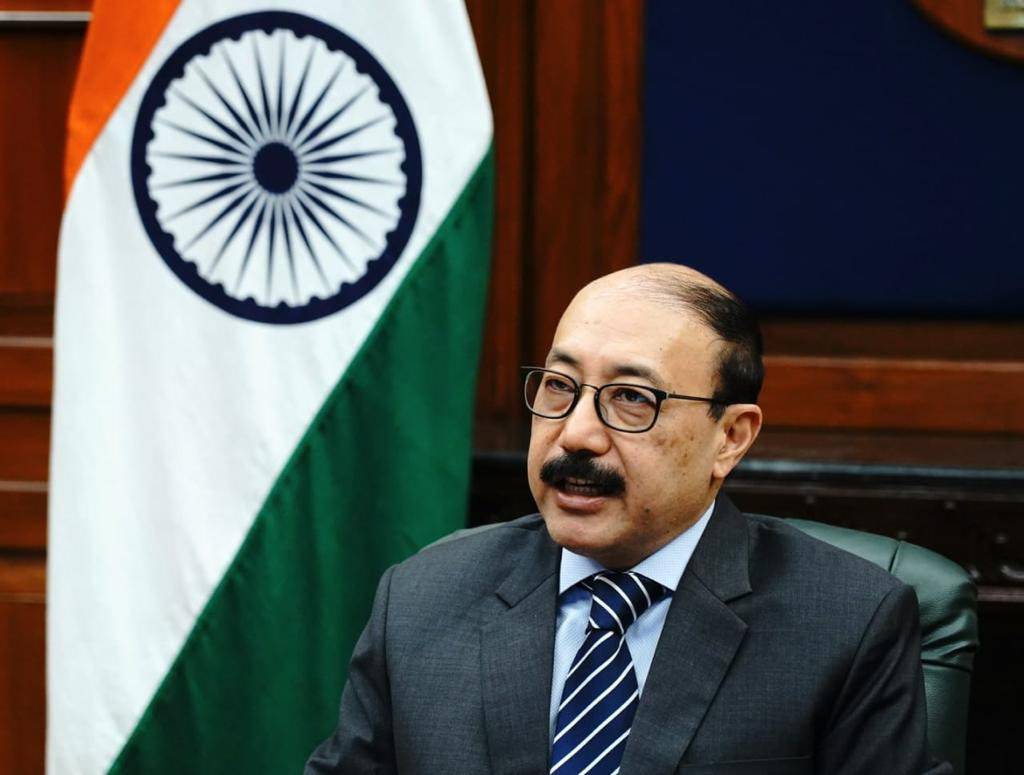Modi’s “today’s era isn’t of war” message to Russian President Vladimir Putin in the backdrop of the Ukraine-Russia conflict has become part of the outcome statement of the G20 joint declaration at New Delhi…reports Asian Lite News
The “use or threat of use of nuclear weapons is inadmissible”, G20 nations said Saturday in a New Delhi Leaders’ Declaration under the mention of the Ukraine war.
Without mentioning Russia, the G20 member countries recalled the Bali declaration and underscored that all States must act in a manner consistent with the Purposes and Principles of the UN Charter in its entirety and called for a “comprehensive, just, and durable peace in Ukraine” and reminded member states to “refrain from the threat, or use of force, to seek territorial acquisition”.
“Concerning the war in Ukraine, while recalling the discussion in Bali, we reiterated our national positions and resolutions adopted at the UN Security Council and the UN General Assembly and underscored that all States must act in a manner consistent with the Purposes and Principles of the UN Charter in its entirety. In line with the UN Charter, all states must refrain from the threat or use of force to seek territorial acquisition against the territorial integrity and sovereignty or political independence of any state. The use or threat of use of nuclear weapons are inadmissible,” the joint declaration read.
This is a historic moment as under India’s presidency 100 per consensus was reached on the New Delhi Declaration on Saturday, the first day of the G20 Summit.
Modi’s “today’s era isn’t of war” message to Russian President Vladimir Putin in the backdrop of the Ukraine-Russia conflict has become part of the outcome statement of the G20 joint declaration at New Delhi.
Modi, in his statement to Putin in a bilateral meeting on the sidelines of the Shanghai Cooperation Organisation summit in Samarkand in September this year in the backdrop of the Ukraine-Russian conflict, had said, “today’s era not of war”.
“On the Russia-Ukraine crisis, India worked very closely with Brazil, South Africa and Indonesia and it was the emerging markets that played a very key role. India worked with all the emerging markets which played a key role, there were very tough and ruthless negotiations that went on for several days nonstop. In the end, the issue was clinched because of the leadership of the PM…”, said G20 Sherpa Amitabh Kant in the joint press conference alongwith Finance Minister Nirmala Sitharaman and External Affairs Minister S Jaishankar.
The New Delhi Declaration reaffirmed that the G20 is the premier forum for international economic cooperation and the member countries acknowledged that the G20 is not the platform for Geopolitical and security issues; although these issues can have consequences for the global economy.
Highlighting that G20 is not the platform to resolve geopolitical and security issues, Jaishankar said that the leaders recognized that they can have significant consequences for the global economy, “In particular, they dwelt on the ongoing war in Ukraine and the impact it has had, especially on developing and least developing nations still recovering from the pandemic and economic disruption.”
The declaration, which was announced by Prime Minister Narendra Modi at the start of the second session of the G20 Leaders’ Summit, said that the New Delhi Declaration, “We highlighted the human suffering and negative added impacts of the war in Ukraine with regard to global food and energy security, supply chains, macro-financial stability, inflation and growth, which has complicated the policy environment for countries, especially developing and least developed countries which are still recovering from the COVID-19 pandemic and the economic disruption which has derailed progress towards the SDGs. There were different views and assessments of the situation.”
“We appreciate the efforts of Türkiye and UN-brokered Istanbul Agreements consisting of the Memorandum of Understanding between the Russian Federation and the Secretariat of the United Nations on Promoting Russian Food Products and Fertilizers to the World Markets and the Initiative on the Safe Transportation of Grain and Foodstuffs from Ukrainian Ports (Black Sea Initiative), and call for their full, timely and effective implementation to ensure the immediate and unimpeded deliveries of grain, foodstuffs, and fertilizers/inputs from the Russian Federation and Ukraine. This is necessary to meet the demand in developing and least developed countries, particularly those in Africa,” it added.
“…Considerable time was spent, especially in the last few days in regard to geo-political issues which really centred around the war in Ukraine. The question who helped? I mean, eventually, everybody helped because everybody came together for the consensus,” Jaishankar said.
Stating that the emerging economies played a major role in the Declaration to get adopted, “EAM said, “I think the emerging markets took a particular lead on this, and many of us have a strong history of working together. Bear in mind that actually, you have four developing countries in succession as G 20 presidency Indonesia, India, Brazil and South Africa but I would say rather than who helped? The point to be recognized is that a common landing point was ultimately fashioned out…”
Emphasising the importance of sustaining food and energy security, the G20 members called for the cessation of military destruction or other attacks on relevant infrastructure and expressed deep concern about the adverse impact that conflicts have on the security of civilians thereby exacerbating existing socio-economic fragilities and vulnerabilities and hindering an effective humanitarian response.
The G20 members called on all states to uphold the principles of international law including territorial integrity and sovereignty, international humanitarian law, and the multilateral system that safeguards peace and stability.
“The peaceful resolution of conflicts, and efforts to address crises as well as diplomacy and dialogue are critical. We will unite in our endeavour to address the adverse impact of the war on the global economy and welcome all relevant and constructive initiatives that support a comprehensive, just, and durable peace in Ukraine that will uphold all the Purposes and Principles of the UN Charter for the promotion of peaceful, friendly, and good neighbourly relations among nations in the spirit of ‘One Earth, One Family, One Future’,” the New Delhi Declaration read.
EAM further said, “The three Fs Food, Fuel and Fertilisers were issues of special concern. Another subject addressed by them… was countering terrorism and money laundering. The leaders condemned terrorism in all its forms and manifestations… Speaking for India, we are clear that no one is left behind. ‘No one left behind’ is as much a foreign policy goal as it is a domestic one…”
In a major win for India, the G20 adopted the New Delhi Leaders Summit Declaration after Prime Minister Narendra Modi announced that consensus had been reached among member states.
“Have just got the good news that due to the hard work of our teams and your cooperation, a consensus has been reached on New Delhi G20 Leaders Summit Declaration,” PM Modi. (ANI)
ALSO READ-UNICEF Flags Afghanistan As Weapons-Contaminated Nation




